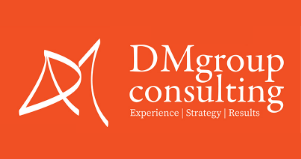Grants are an important resource for nonprofits seeking to fund their programs and initiatives. Securing a grant can provide the necessary support to expand services or launch new projects. However, the process of getting a grant requires careful preparation and understanding of what funders are looking for.
Understanding Grant Requirements
When preparing for a grant, the first step is understanding its specific requirements. This starts with researching the funding criteria for each grant opportunity. Funders typically outline specific areas or types of projects they want to support. Read through these criteria carefully to determine if your nonprofit aligns with their focus. Identify key themes and priorities emphasized by the grant provider to tailor your application accordingly.
Aligning your projects with the grant’s objectives is crucial. Consider how your organization’s goals match the funder’s priorities. Think about the impact your project will have and how it fits within the grant’s scope. Creating a clear connection between your project and the funder’s mission enhances your proposal’s appeal and chances of approval.
Preparing necessary documentation is another key part of the process. Most grants require specific documents, such as a financial statement, program outlines, or letters of support. Ensure all necessary paperwork is ready before submission. Double-check all documents for accuracy and completeness, as missing or incorrect information can lead to disqualification.
Here are some steps to follow when understanding grant requirements:
- Explore grant websites for detailed criteria
- Compare your project goals with the grant’s mission
- Gather and organize all required documents
By thorough research and thoughtful alignment with the funder’s goals, you set a solid foundation for your grant application. This preparation ensures your nonprofit puts its best foot forward in the competitive world of grant funding.
Building a Strong Proposal
Writing a strong proposal is essential to capture the attention of funders. Start by crafting a compelling narrative that clearly explains your project. This narrative should tell the story of your nonprofit’s mission, the issue you address, and how the grant will help solve the problem. A well-written story connects emotionally with the reader and demonstrates the necessity of your work.
Setting clear goals and outcomes is equally important. Funders want to know what you aim to achieve with their money. Be specific about what success looks like for your project and how you will measure it. Clearly defined objectives show that your nonprofit is organized and ready to deliver results.
Including detailed budget plans in your proposal reassures funders of your financial responsibility. Outline how you will spend the grant money and provide estimations for each part of your project. Break down the costs to help funders see exactly where their money will go and how it will make a difference.
Consider these components when building a strong proposal:
- Write an engaging and clear project narrative
- Establish measurable and realistic goals
- Detail an itemized budget plan
Ultimately, a strong proposal not only makes your project understandable but also memorable. It shows that your nonprofit is well-prepared, organized, and deserving of support. This structured approach increases your chances of catching the funders’ interest and securing the grant.
Establishing Relationships with Funders
Building strong relationships with funders is key to securing grants and ensuring continued support. Start by identifying potential funders who align with your nonprofit’s mission and goals. Look for grantmakers who have previously funded similar projects or have a vested interest in your field of work. This increases the likelihood of mutual interest.
Initiate communication with these grantmakers before submitting your application. This can be done through emails, phone calls, or networking events. Establishing a connection early helps personalize your approach and gathers valuable insights into what funders are looking for. It also opens a channel for asking questions about the grant process.
Maintaining ongoing engagement with funders is vital for long-term success. Keep them informed of your progress by providing regular updates and showcasing outcomes achieved with their support. This transparency builds trust and forms a foundation for future collaborations. Consider these steps for successful relationship-building:
- Research and list potential funders
- Contact funders to introduce your nonprofit
- Keep funders updated with regular reports
Preparing for Successful Grant Management
Successfully managing a grant involves more than just receiving funds. It requires diligent planning and oversight to ensure compliance and meet funders’ expectations. Develop tracking systems for grant activities to monitor progress and expenditures accurately. This system should align with the grant requirements and help keep your team on track.
Ensure compliance with all conditions set by the grant agreement. This includes adhering to timelines, budget constraints, and reporting standards. Staying compliant not only fulfills obligations but also increases the likelihood of receiving future grants. Regularly reviewing these conditions keeps your team accountable.
Report outcomes and impacts regularly to showcase the benefits of the grant. Sharing successes and lessons learned highlights your nonprofit’s effectiveness and reinforces the funders’ investment. Craft clear, informative reports that underline the value added by their support, ensuring transparency and continued partnership. Effective grant management steps include:
- Create tracking tools for activities and expenses
- Ensure adherence to grant terms and conditions
- Prepare regular impact reports for funders
Conclusion:
Navigating the grant process requires a thoughtful approach and strategic planning. By understanding grant requirements, crafting strong proposals, and building relationships with funders, your nonprofit sets itself up for success. Paying attention to managing the grant effectively further enhances your organization’s credibility and capability.
Are you ready to take the next step in securing and managing grants for your nonprofit? Let DM Group Consulting be your partner in this journey. Our expertise in strategic planning and grant readiness can help you build a solid foundation for success. Reach out today to see how we can help your nonprofit achieve its goals!




